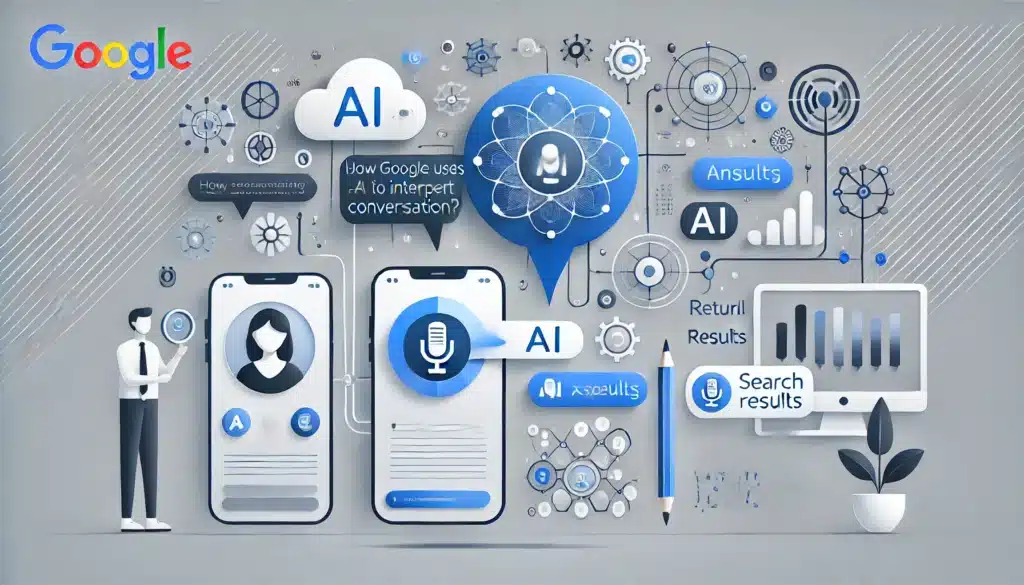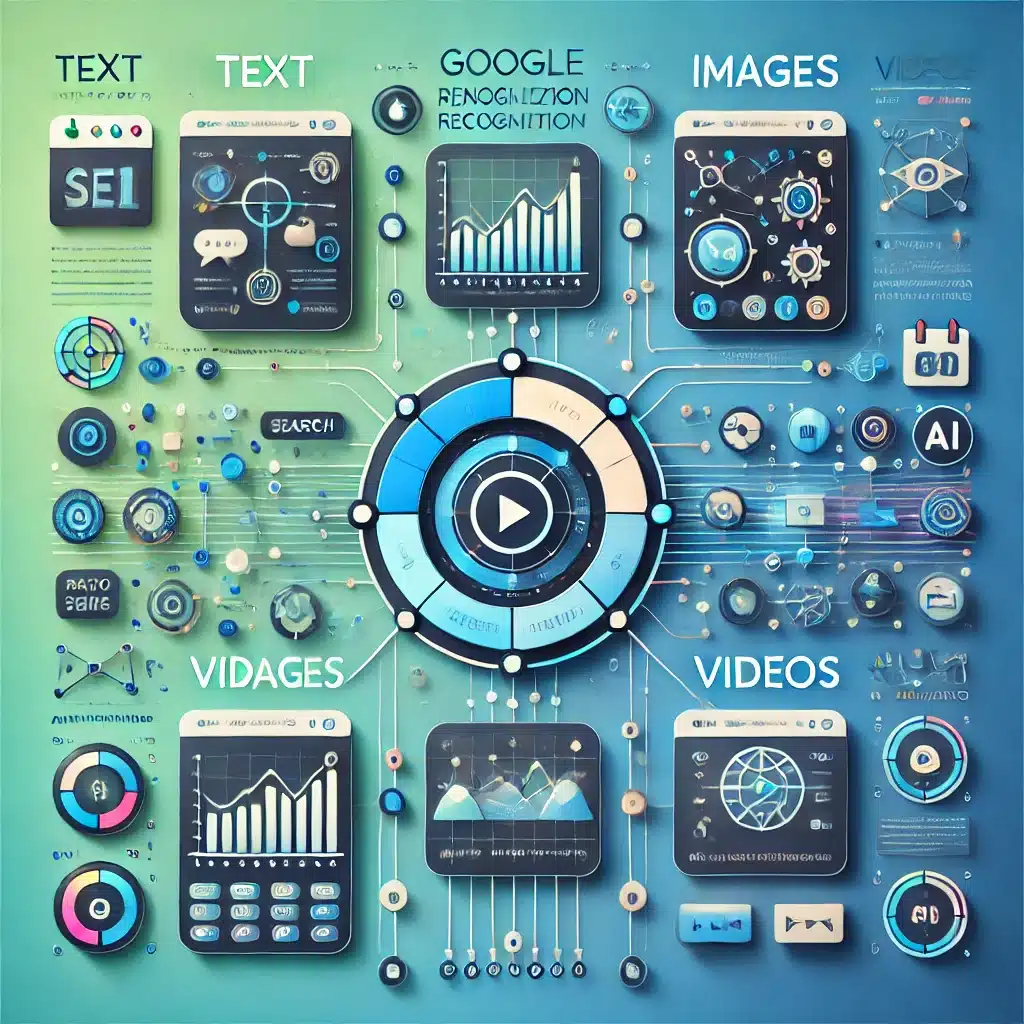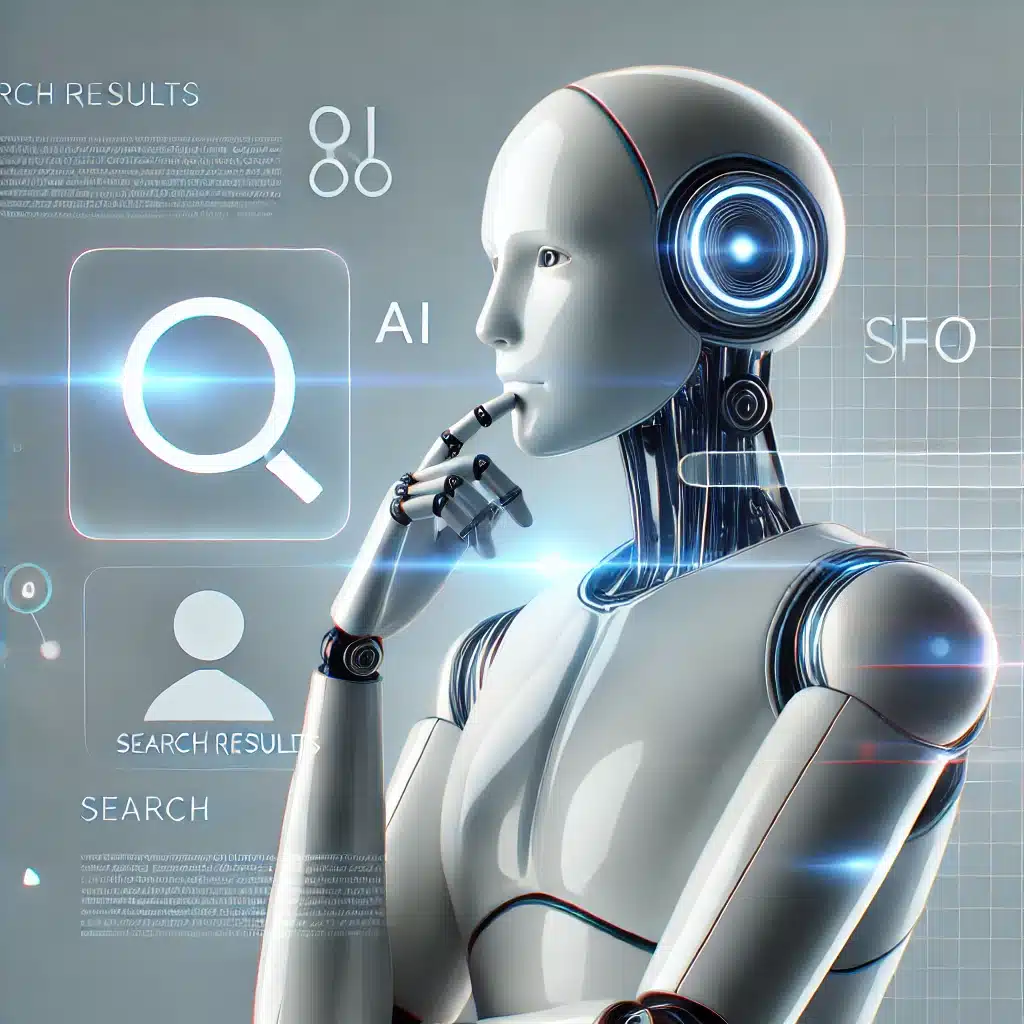Artificial intelligence (AI) is revolutionizing everything from how we order pizza to how we search for information on Google. And speaking of Google, the giant’s planned updates for 2025 are generating more speculation than the end of Game of Thrones. So, if you’re in SEO or just want to understand what’s going on with search algorithms, here’s an analysis full of data, science and a little bit of irony to keep you awake.
Google has made it clear that its future is marked by increasingly advanced AI models. Remember BERT and MUM? Those models were just the warm-up. Now, the search engine is working on even more sophisticated tools, such as PaLM and Gemini, that promise near-human understanding of natural language.
In practical terms, these technologies will allow Google to interpret search intentions much more accurately. Goodbye to exact keywords and hello to conversational, nuanced, context-based searches.

For example, instead of searching for “best Mexican restaurant Barcelona”, Google will understand if you type “Where to eat amazing tacos near me?” and will give you more personalized recommendations, based on your habits, location and even the last review you gave a place on Maps. And not only that: the answers will include rich content such as real reviews, menu options and even estimated walking time.
Google is not interested in keeping us quiet. In fact, updates to its algorithm will become more frequent and less predictable. This is due in part to AI, which will allow for near real-time adjustments.
We are no longer talking about Core Updates every few months, but constant changes that will optimize the user experience while SEOs lose a little more hair with each update. These micro-updates, driven by real-time data, could even adjust based on the collective behavior of users in certain time slots or regions.
Content must not only be relevant; it must be useful and understood in all formats. The 2025 updates promise to give more prominence to multimedia content: images, videos, podcasts and even augmented reality.
Google will use its AI to analyze not only the text on your page, but also what your videos say or the context of your images. Imagine you upload a video on “How to make sushi at home”: Google could understand not only the recipe, but also detect the quality of the video, the detailed steps you explain and if your cooking utensils are fashionable (because yes, that counts too).

In the future, optimizing for Google will be optimizing for human users. Conversational and context-based searches will make keyword stuffing more useless than putting a lock on a door without hinges.
However, this does not mean that keywords are dead. What changes is how we use them. Instead of focusing on repeating a phrase 20 times, we need to make sure that the content answers users’ questions directly and naturally. This also means optimizing for synonyms, related questions and regional expressions that can enrich the searcher’s intent.
The famous Expertise, Authoritativeness, Trustworthiness (E-A-T) now includes a new “E” for Experience. This means that Google will value not only experts and trusted sources, but also the direct experience of the author or page.
For example, a blog about trekking written by someone who actually treks will carry more weight than a generic article by a writer who has never been out of town. Authenticity will be key. And Google might even prioritize content with tangible evidence, such as real photos, location logs and verified anecdotes.
Although AI is a powerful tool, Google wants to avoid an internet full of soulless content. By 2025, algorithms will be able to detect (and penalize) content generated exclusively by AI without human oversight.
If you use AI for writing, be sure to proofread it, humanize it and add a personal touch. Google doesn’t want robots writing for other robots. Remember: generic content can be functional, but exceptional content is the one that leaves an impression.
Google’s updates in 2025 will not be the end of SEO; they will be an evolution to a smarter, more intuitive and user-centric model. If you embrace AI as a tool and not an enemy, you stand a better chance of coming out on top.
At Kiwop, we believe that SEO is not magic. It’s science. And, as in any laboratory, the key is to experiment, measure and adapt. Are you ready for this new era?

If you need help keeping your strategy algorithm-proof, contact us. After all, someone has to help you survive the Google jungle.
If you want to have the website you want or increase the online visibility of your brand, we know how to do it.
Shall we start today?
Leave a Reply